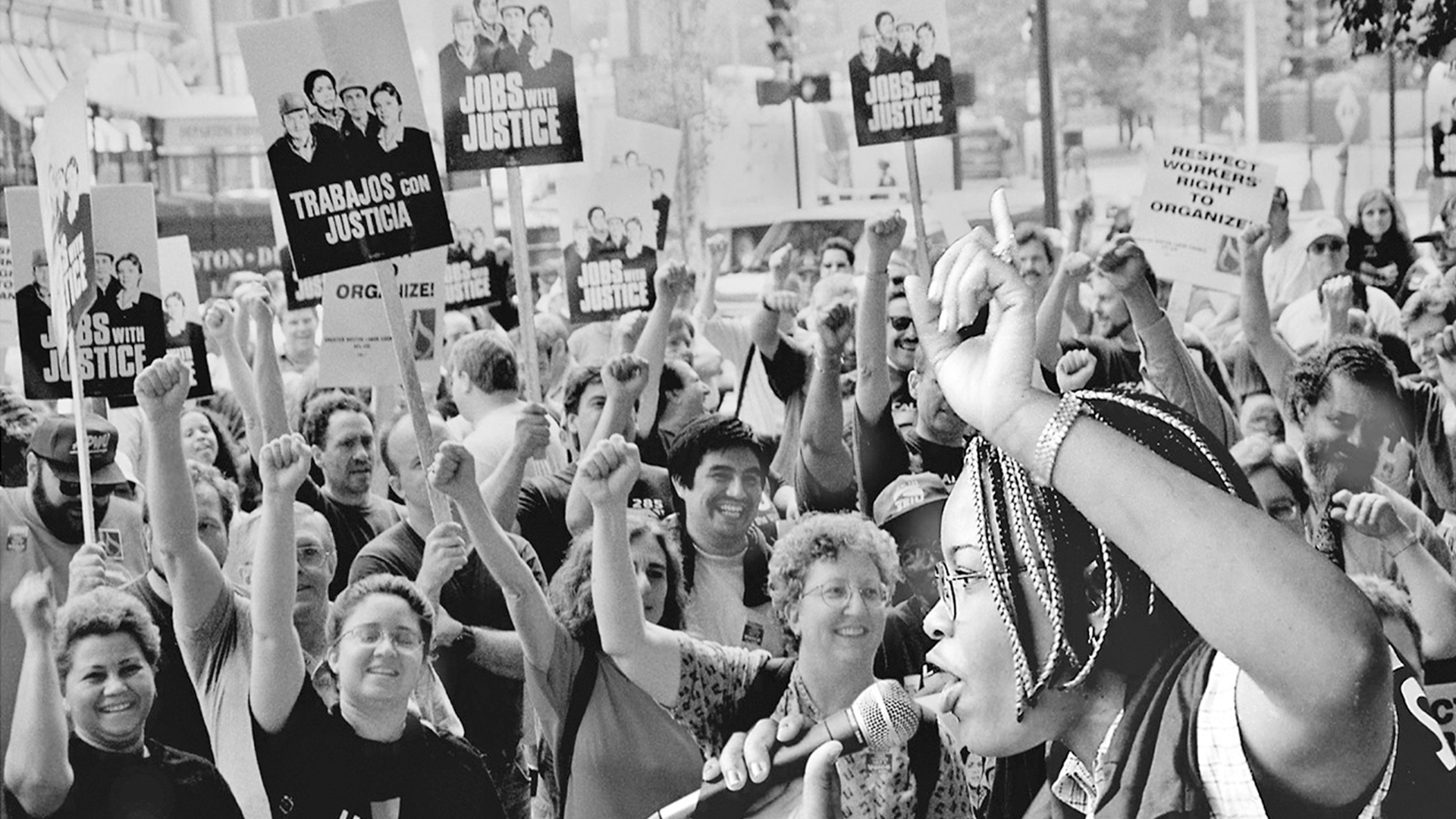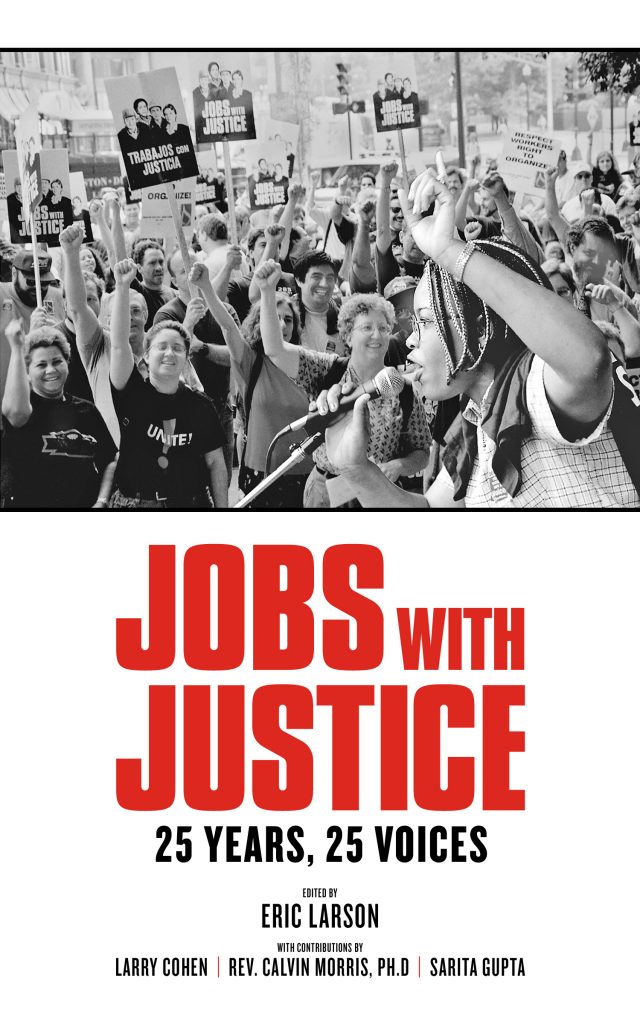By Paul Buhle
LAWCHA
Labor and Working-Class History Association
October 31st, 2013
These days, successful labor activity among the unorganized seems to depend, in ever greater degree, upon “faith based organizing,” union efforts interfacing with the constituencies of churches and the occasional synagogue. If this is a major trend, it surely begins with the story of Jobs with Justice. One of the shining stars in the general darkness of the past thirty years, JWJ has often felt more like a missionary organization than a collective project for self-interest—just as in the most vital moments in American labor history, before the dead hand of the functionaries took hold.
Looking way back, the AFL of Samuel Gompers, exclusionary by intent, eventually yielded to an AFL-CIO run by highly paid figures of the 1950s little interested in unpromising avenues including (mostly women) office workers, agricultural workers, and, of course, the undocumented workers who were considered unwanted at best. No wonder labor went to rack and ruin.
Enter JWJ, a most unusual venture supported by progressives and even a few noted regressives, i.e., Cold Warriors with suspicious past connections, like certain officials of the Communications Workers before Larry Cohen stepped into the presidency. Cohen’s rise was doubly important because more than anyone else, he pushed the idea that community organizing movements, support groups for non-English speaking immigrants and others, could coalesce with sections of labor was the right one at the right time, i.e., the 1980s. Here is the secret for a valuable little book, impressive as an oral history project, equally impressive for the ideas that it brings to labor. Jobs with Justice: 25 Years offers deeply personal stories, varying widely according to local conditions, allies and prospects. Here we rediscover some considerable victories and, inevitably, some bitter defeats. Perhaps beyond the details, we find a sensibility that could be, might yet be, a rebirth of a solidarity labor movement.
Larry Cohen himself suggests lucidly, without being polemical, about why that moment has not arrived for the AFL-CIO generally. Members disappear but “institutionitis” even more than a growing scarcity of resources (including money for organizing) hangs on. It could be called the Dead Hand of the post-1950 past, although that would be too simple. Readers are directed to dig into the details for themselves. It’s a rich trove, and tells us much about efforts in the nonunion South, for instance, armed with civil rights allies, women’s groups, and the coalitions around Living Wage efforts. Or post-industrial cities like Cleveland and Buffalo, where strong unions had come and gone, leaving the community (and especially minorities) behind.
Jobs with Justice aimed at a “permanent coalition,” placing labor where it would naturally be, and was in the days of the ethnic halls near the big manufacturing plants reached largely on foot from the neighborhoods.
In the days before Social Security, sickness-and-death benefit societies, consumer coops and music on weekends wove a fabric of solidarity. Now, the fabric needs to be rewoven with all the resources available and more.
That “more”
is, in significant degree, a spiritual thing. Thus a cofounder of the
Cleveland chapter describes growing up Catholic, boycotting lettuce in
solidarity with the United Farm Workers (and Cesar Chavez), feeling
uplifted by Martin Luther King, Jr., and fighting for health care reform
arm and arm with local black ministers. That the Cleveland Federation
of Labor vigorously opposed the US role in Iraq as well is a tribute to
how labor could be turned around from the hawkishness of the George
Meany/Lane Kirkland years.
Jobs with Justice: 25 Years, 25 Voices
is not a critical history, and the weaknesses of the movement remain to
be addressed. But this is a wonderful beginning on preparing any reader
for the story of labor in the 21st century
Jobs with Justice: 25 Years, 25 Voices.
Edited by Eric Larson, with contributions by Larry Cohen, Rev. Calvin
Morris, and Sarita Gupta. Oakland, PM Press, 2013. 180pp, $15.95







